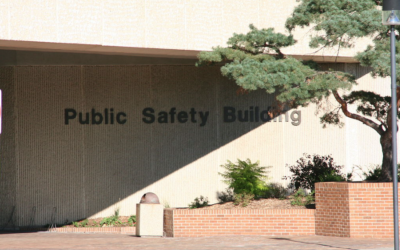Who owns the public infrastructure assets in the U.S.? If your answer was – the federal government – you would be wrong.
There’s lots of talk about infrastructure today and both parties in Congress are advocating for the funding, incentives and support that will be required to repair and expand the nation’s crumbling infrastructure. But, interestingly enough, the Bureau of Economic Analysis (BEA) says the majority of the country’s infrastructure is not owned by the federal government.
Most of the country’s public infrastructure assets are owned by state and local governments. That is where about 87 percent ownership is held. The federal government can claim only 13 percent ownership. And interestingly enough, one recent research report from the Cato Institute proclaims that state and local governments and the private sector have funded almost 94 percent of the country’s public infrastructure assets.
That claim, however, begs the question of what is included in the category of infrastructure. Most economists content that infrastructure covers all public assets, but a few also include privately owned assets such as electric utilities. Whatever assets are included when referring to infrastructure, there is almost universal agreement that elected officials, taxpayers and citizens must focus on rebuilding and expanding the country’s infrastructure.
Although public-private partnerships (P3s) have not been embraced as quickly in the U.S. as in other countries, a growing number of public officials now agree that private-sector funding and expertise are required. The nation’s infrastructure cannot be fixed without it. State and local officials know they don’t have the funds or resources to rebuild infrastructure without collaboration from private-sector partners.
Today, nearly three-dozen states, the District of Columbia and one U.S. territory have enacted legislation for public-private partnerships. While P3s are not a silver bullet solution for all types of much-needed projects, they are attractive and appropriate for most types of infrastructure initiatives.
Officials in the District of Columbia have announced plans to upgrade their street lighting network. The project, which will result in large savings to the District, will require private-sector capital and expertise. A request for qualifications (RFQ) was released last week to convert the District’s current network to more efficient LED technology with remote monitoring and control capabilities. This type of project is rather common and many other public entities have done the same. All have used private-sector capital and expertise. The solicitation document calls for a private-sector partner to design, construct, install and finance the project.
The Texas A&M University Syst
Howard County, Maryland, recently hosted an industry presentation for companies interested in building a new Circuit Courthouse and parking facility. The county will require private-sector capital and the project will be a P3. Later this summer, the county will seek expressions of interest from firms planning to compete for the construction opportunity. The private-sector partner that is selected will design, construct, finance, operate and maintain a new 230,000-square-foot courthouse and 60-space parking garage. Cost estimates for the project are approximately $140 million.
These types of projects will become the norm. Public-sector needs are increasing as public-sector revenues decrease. The demand for private-sector capital and expertise will only grow and expand in the coming year.
SPI’s team of experienced procurement consultants have a long track record of identifying and winning public sector business. Contact them today!






